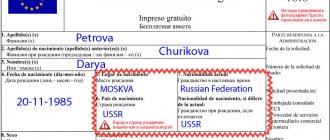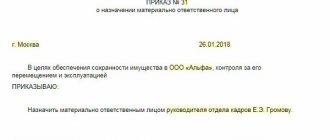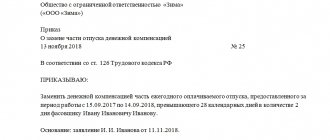Collecting accounts receivable requires a lot of preparation and a lot of free time. And even after the trial, it is not a fact that money will start coming from the debtors. Moreover, bailiffs are often inactive. Additional complexity is caused by situations when the debt for housing and communal services needs to be collected from the city administration. Read about the main challenges and how to achieve success.
How to calculate penalties for non-payment of housing and communal services after the lifting of the moratorium 2020
328348
What does the administration refer to to justify the resulting debt?
For clarity, we will examine court case No. A26-7303/2018, in which one of the homeowners’ associations in Petrozavodsk achieved the collection of debt for housing and communal services from the city administration. Let us note that the owners initially had more than 5 million rubles in debt to this partnership. The HOA managed to obtain positive court decisions for all debtors – both individuals and legal entities.
Some of the apartments in the building, which is managed by the HOA, belong to the city administration, which rents them out under social tenancy agreements. When no one lived in the premises, the administration did not pay for housing and communal services, and debts accumulated. With this problem, the partnership turned to the arbitration court: it asked to collect the debt and penalties for the disputed periods.
In response, the OMS pointed out three circumstances: since the apartments were empty during certain periods, it is not necessary to pay for housing and communal services; in addition, the HOA missed the statute of limitations and did not send payment documents to the administration, so the accrual of penalties is unlawful.
The procedure for collecting debts through litigation
An appeal to the court can be carried out in several ways, which gives the following procedure for collecting debts:
- Initiation of an order for issuing a decision.
- Implementation of the claim algorithm for consideration of the issue.
Work under a court order
Such proceedings are a more simplified system for considering an application by the court. The algorithm for its passage is as follows:
- the creditor's representative submits documents for the issuance of a legal order;
- the judge initiates a court order for compulsory collection of debts and provides it to the debtor. The deadline for processing the order is 5 days from receipt of the application. In this case, the debtor is given a ten-day period to implement objections on this issue. The presence of objections is a reason to cancel the issued order, and public utilities are given the opportunity to go to court to collect debts through a statement of claim;
- If there are no objections from the debtor, the order comes into force and is sent to the bailiffs to continue working with him.
You should know that a court document is issued subject to a debt of no more than half a million rubles and in case of complete non-payment of utilities within a six-month period. If the debtor paid for housing and communal services partially, then it is not possible to involve him in litigation. Judicial practice shows that only 10% of orders issued by the court develop into a claim for a full cycle of consideration, since they are resolved at this level.
Claim practice of seizure of obligations
When a judicial order is filed, a housing and communal services representative can draw up a statement to the court, which is the basis for starting full court proceedings on housing and communal services debts. The difference between this action and receiving an order is the holding of several court hearings, where the claim is considered on the merits and during which utility companies are required to justify:
- Timing of receivables.
- The amount is the basis for the debt.
- The procedure for calculating penalties.
- The presented amount of forced expenses to support the work on debt collection.
Upon receipt of a positive decision for the utility company, the debtor will be awarded payment of the principal amount owed, penalties and all costs associated with filing documents. Utility workers a paper to present it to the enforcement service by bailiffs.
You should know that when several people live in an apartment, the penalty is imposed on all registered persons jointly and severally. But for such a regulation, in terms of requirements, it is necessary to indicate the initiation of deductions not only from the owner of the home, but also from all family members who have reached the age of majority. This procedure is mandatory based on the Regulations on Enforcement Proceedings.
The parties, during the work of the court, and even after the ruling has been issued, have the opportunity to conclude a settlement agreement, which includes clauses that are equally beneficial to the opponents. The result of the work may be installment payment, write-off of accrued penalties. The document must be approved by the judge who is considering the case of collection of debt for housing and communal services.
Citizens and organizations are required to pay for housing and utility bills on time and in full.
The owner bears the burden of maintaining the property he owns, unless other conditions are specified in the law or agreement (Article 210 of the Civil Code of the Russian Federation). The institution receives the right to operationally manage property from the moment it is transferred to it, unless otherwise determined by law or by decision of the owner (Part 1 of Article 299 of the Civil Code of the Russian Federation).
Owners of residential and non-residential premises in an apartment building, by right of common shared ownership, own the common premises of the house, load-bearing structures, equipment and the land plot on which the house is located, with elements of landscaping and landscaping (Part 1 of Article 290 of the Civil Code of the Russian Federation, Part 1 of Art. 36 Housing Code of the Russian Federation). The owners bear the costs of maintaining common property in proportion to their shares in the right of common ownership of this property (Article 249 of the Civil Code of the Russian Federation, Articles 37, 39 of the Housing Code of the Russian Federation).
Also, the owner of a premises in an apartment building is obliged to bear the costs of maintaining such premises and common property in proportion to his share in the right of common ownership of this property. To do this, he pays for the maintenance and repair of residential premises, contributions for major repairs (Part 1 of Article 158 of the Housing Code of the Russian Federation).
Citizens and organizations are obliged to pay timely and in full for housing and utilities (Part 1 of Article 153 of the Housing Code of the Russian Federation). Such an obligation arises for the owner of the residential premises from the moment the right of ownership to it arises, taking into account the rule established by Part 3 of Art. 169 Housing Code of the Russian Federation.
Should compulsory medical insurance pay debts for housing and communal services on escheated property?
29610
While the premises of the municipal housing stock are empty, the administration pays for housing and communal services
Before the occupancy of residential premises belonging to the state and municipal housing stock, the costs of maintaining residential premises and utilities are borne by state authorities and local governments or persons authorized by them (Part 3 of Article 153 of the Housing Code of the Russian Federation).
Payment for residential premises and utilities for the owner in an apartment building includes payment for the maintenance of residential premises and for utilities (Part 2 of Article 154 of the Housing Code of the Russian Federation). The list of persons who are obliged to pay rent and utilities is established in Part 2 of Art. 153 Housing Code of the Russian Federation. It includes both the tenants of residential premises under a lease agreement from the moment the contract is concluded, and the owner of the premises from the moment the ownership of such premises arises.
The amount of utility fees is calculated based on the volume of consumed utilities. This volume is determined according to the readings of the meters, and if there are none, according to the standards (Part 1 of Article 157 of the Housing Code of the Russian Federation).
If no one lives in the residential premises permanently or temporarily, then, in accordance with paragraph 56(2) of Rules No. 354, the volume of utilities is calculated according to the number of owners. If the apartment is not used, this is not a reason not to pay for it and utilities (Part 11, Article 155 of the Housing Code of the Russian Federation).
Guided by these provisions, the court rejected the administration’s arguments that it should not pay for housing and communal services for empty housing stock.
Features of debt collection for housing and communal services
Many people believe that work related to debt collection for housing and communal services is relatively easy and does not require serious professional training. Based on my own experience of working with management companies, as well as TSN and HOA, I would like to draw attention to such difficulties that arise when collecting debt for housing and communal services, such as:
- lack of information about the exact amount of debt;
- misunderstanding of the labor costs and difficulties that arise in the work of lawyers in this area of activity of management organizations (hereinafter referred to as MA);
- lack of even an approximate plan for collection and work with enforcement proceedings.
Let's consider each of these aspects in more detail.
Lack of information about the exact amount of debt
None of the management companies I worked with could immediately indicate the exact amount of debt for housing and communal services. Many will say that there is a lot of work, and information is constantly changing. In turn, I would like to note that this data is very important and the management of the educational institution is obliged to constantly update it, since this is, first of all, their income, on which the quality of services, the purchase of material and technical base, etc. directly depend. In addition, we should not forget that the prosecutor’s office, as a rule, once a year checks the collection of debts for housing and communal services in accordance with Art. 22 of the Law on the Prosecutor's Office, and in case of failure to provide information or lack of work to collect the debt, the PA may be brought to administrative liability under Art. 17.7 Code of Administrative Offenses of the Russian Federation.
Thus, the managers of the management company need to constantly check the amounts of debt for the apartment buildings that they service and have at least an approximate collection plan, otherwise the management company may be subject to administrative punishment, and this is a serious blow to its reputation.
Misunderstanding of labor costs and difficulties in the work of lawyers in this area
There is an opinion among some management authorities that the work of collecting debts for housing and communal services does not require a special approach or preparation: it is enough to have one specialist in this area - and the collection process will go by itself.
I think this is a serious misconception. Imagine a management agency serving more than a dozen apartment buildings. In every house, as a rule, there are debtors, and you need to work not with each house, but with each debtor individually. In this regard, time and labor costs increase by an order of magnitude. In parallel, work is underway on enforcement proceedings and forwarding claims to debtors – legal entities. Moreover, despite applications for the issuance of a court order or claims to legal entities, there is still a category of persons who fundamentally disagree with the payment of debts for housing and communal services and appeal applications for the issuance of court orders, as a result of which there is a need to file a claim in the courts. This significantly slows down the collection work, since much more time and documentation is required for claims for collection of debts for housing and communal services than for similar applications in the order of writ proceedings.
In small organizations, as well as TSN and HOA, the functions of legal services are often combined with secretarial activities and other administrative and economic functions. Imagine the amount of work lawyers do: this includes preparing responses to citizens’ requests, and participating in judicial, including administrative, processes to represent the interests of the company, and working with government agencies and organizations, creating local regulatory legal acts of the organization and checking them for compliance legislation, as well as work within the framework of inspections of government agencies, consultations with various departments and employees, contractual work and debt collection for housing and communal services. It often happens that even in large educational institutions all of the above functions are performed by one person. I believe that all this leads to destabilization of the lawyer’s work, his excessive workload and, as a result, routine, which makes it very difficult to allocate time specifically for debtors.
In this regard, I believe that it is possible to resolve these issues only by clearly planning the activity and its directions for the lawyer, as well as preferably dedicating two specialists directly to the work of debt collection, since many management companies have huge amounts of receivables and one person is physically unable to able to cope with this task. For example, as the head of the Russian Ministry of Construction, Vladimir Yakushev, noted at a meeting of the President of Russia with members of the government, “the total debt in the housing and communal services sector of Russia is not decreasing and currently amounts to about 1.3 trillion rubles.” At the same time, he added that of the said amount, the debt of the population is about 810 billion rubles, of budgetary organizations - 60 billion rubles, and other consumers owe 400 billion rubles.
As you can see, the collection of debts for housing and communal services must be treated with special care. To successfully work in this direction, it is necessary to have two employees in the organization, one of whom will be exclusively engaged in compiling a list of debtors, calling them, as well as collecting and preparing documents for the issuance of court orders with their subsequent transfer to the FSSP, and the other - representing the interests of the company in legal proceedings for debt collection.
It is advisable to divide the work on enforcement proceedings between the specified employees, one of whom will conduct enforcement proceedings within the framework of the court orders that have entered into force, and the other - the issued writs of execution.
Lack of even an approximate plan for collection and work with enforcement proceedings
In my opinion, it is impossible to organize collection work without a plan and deadlines for its implementation - otherwise, red tape and confusion in documentation are possible, which will lead to destabilization of debt collection activities for housing and communal services. To solve the problem, I propose an approximate instruction plan consisting of three blocks:
- claims work with legal entities;
- claims work with owners (tenants) of residential premises;
- enforcement proceedings.
However, first of all, it is necessary to determine the amount with which you can begin debt collection work.
Firstly, we can take as a basis the norm of clause 118 of the Decree of the Government of the Russian Federation of May 6, 2011 No. 354 “On the provision of utility services to owners and users of premises in apartment buildings and residential buildings,” which states that under incomplete payment by the consumer of utility services it is understood that he has a debt to pay for one utility service in an amount exceeding the sum of two monthly fees for a utility service, calculated based on the standard of its consumption, regardless of the presence or absence of an individual or general (apartment) meter and tariff (price) for the corresponding type resources valid on the day of restriction of the provision of utility services, provided that there is no agreement on debt repayment concluded between the consumer-debtor and the executor and (or) if the consumer fails to comply with the terms of such an agreement.
If the consumer does not fully pay for all types of utility services provided, the contractor calculates the debt for each of them separately. Thus, the amount of debt is an amount that more than doubles the amount of payment for housing and communal services. However, if the debtor lives in “old” houses (for example, five-story buildings), where the amount of payment for housing and communal services is relatively small and does not exceed the minimum wage in the city or the average salary, in my opinion, there is no reason to begin collection immediately in court, since the amount will be quite small.
Secondly, determining the amount of debt based on the minimum wage for the region. This amount may already be more than two housing and communal services payments, but it is still relatively small.
Thirdly, determining the amount of debt based on the average salary in the city or region. I believe this is the optimal amount, which is quite significant for starting work on debts for housing and communal services in full, including the judicial stage.
Claim work with legal entities
It is advisable to divide this block into two parts: work on collecting debts for housing and communal services from legal entities in writ proceedings (for individual entrepreneurs and legal entities with a claim amount of up to 50 thousand rubles) and in the general procedure for considering disputes in an arbitration court (over 500 thousand . rub.).
The work is divided into stages:
- request and receipt of a list of debtors in the accounting department;
- calling debtors, drawing up a work plan with each of them;
- resolving the issue of concluding agreements on installment payment of debts for housing and communal services;
- drawing up a claim against a list of debtors;
- sending claims by mail, courier;
- compiling a register of submitted claims;
- monitoring the timing of claims, checking the status of payment;
- sending documents to the arbitration court for the issuance of enforcement orders or to initiate legal proceedings;
- checking the results of the court issuing executive orders and initiating arbitration cases (after initiating court cases - sending the necessary explanations, petitions (to freeze accounts), objections to reviews, etc.);
- conducting legal proceedings, obtaining a court decision, an executive order, resolving the issue of appeal, sending enforcement documents to the FSSP.
Claim work with owners (tenants)
The algorithm for collecting debts from owners (tenants) of residential premises is practically similar to collecting from legal entities, with the exception of a mandatory claim.
However, it is important to pay attention to the identifiers of debtors (Article 131 of the Code of Civil Procedure of the Russian Federation), which the management organization may not have. In this case, it makes sense to look for the missing data in the passport office, contracts and other documents. If any identifiers are missing, we recommend indicating their absence in the claim or application for the issuance of court orders. In the operative part of the application, it is important to draw the attention of the court so that it must indicate this identifier in its decision, otherwise the executive document will not be accepted by the FSSP in accordance with subsection. “a” clause 5, part 1, art. 13 of the Law on Enforcement Proceedings.
Enforcement proceedings
Work with enforcement proceedings is also divided into two blocks:
- checking and conducting existing enforcement proceedings;
- exciting and leading new ones.
The first block includes:
- compiling a register of filed enforcement documents and forming cases for each of them;
- drawing up and sending applications to the departments of the FSSP of Russia to submit a report on the enforcement actions of bailiffs;
- receiving reports on enforcement actions, analyzing them, determining the need for personal acquaintance with proceedings regarding which there are questions;
- drawing up an action plan after familiarization (sending petitions, complaints, statements to bailiffs, the FSSP department for the region, prosecutors and other government agencies);
- compiling a register of completed actions in enforcement proceedings;
- monitoring results and receiving responses to petitions, applications and complaints; determination of further actions in enforcement proceedings.
The second block includes the following necessary actions:
- drawing up applications for the initiation of enforcement proceedings for legal entities and individuals (if possible, it is advisable to group submitted applications for each house separately);
- sending these applications to the FSSP departments by courier or by mail;
- compiling registers of submitted applications to initiate enforcement proceedings;
- obtaining orders to initiate enforcement proceedings;
- determination of deadlines for completion of enforcement proceedings, verification of payment for them.
I also recommend that before the end of the collection period for enforcement proceedings against debtors for whom collection has not been carried out, you personally familiarize yourself with the materials of the enforcement proceedings and photograph them. Then draw up the necessary petitions, complaints and submit them. It is mandatory to draw up a register of actions taken within the framework of enforcement proceedings. After this, monitor judicial acts issued based on the results of consideration of complaints and applications, and make decisions on the further fate of such enforcement proceedings.
In conclusion, I would like to draw attention to the general schedule (plan) of work on collecting debts for housing and communal services. In my opinion, we should take all debtors in one house as a basis and work on it, subsequently moving on to the next houses. If one lawyer is working on collection, it makes sense to devote the first week to preparing documents for the court, including compiling a register of debtors, calling them, concluding installment agreements for the repayment of debts for housing and communal services, drawing up claims, as well as statements to the court.
You should definitely set aside a working day (or half) to check the documents compiled, even if they seem to be of the same type. This is a very important detail when working with documents, since the human factor cannot be canceled and anyone can make a mistake. Otherwise, a situation may arise when a lawyer sends many applications to the court with a lot of technical errors and typos. I would like to remind the management of the administrative organization that lawyers compile a huge amount of documents, and, unfortunately, mistakes always happen to everyone. Therefore, in order to provide specialists with the opportunity to collect a lot and effectively, either turn a blind eye to errors that are not significant (typos or misspellings in words), or allow a day to check and correct documents before sending them.
The second week should be devoted exclusively to preparing a position and drawing up documents on pending claims for debt collection in the courts. It is advisable to allocate the third week for enforcement proceedings, and devote the fourth to summing up the results of the work, receiving responses to applications, petitions, complaints and working with them, drawing up plans for further collection.
Limitation period: controversial issues
The administration, in its defense, pointed out that the homeowners association had missed the statute of limitations, so there was no need to pay for housing and communal services. The limitation period is the period for the person whose right has been violated to defend this right in a lawsuit (Article 195 of the Civil Code of the Russian Federation).
The limitation period begins from the day when the person whose right was violated learned or should have known about the following circumstances:
- about violation of your right;
- about who is the proper defendant in the claim (part 1 of article 200 of the Civil Code of the Russian Federation, clause 1 of the resolution of the Plenum of the Armed Forces of the Russian Federation dated September 29, 2015 No. 43).
The general limitation period is three years from the date determined in accordance with Art. 200 of the Civil Code of the Russian Federation (Article 196 of the Civil Code of the Russian Federation). According to Part 3 of Art. 202 of the Civil Code of the Russian Federation, the limitation period is suspended if the parties have resorted to a non-judicial procedure for resolving the dispute (clause 16 of Resolution No. 43).
In the case under consideration, the courts found that, taking into account the claim in the materials and the suspension of the limitation period, the limitation period for the claim for payment of debt for the disputed period had not expired, and therefore the decision was made in favor of the HOA.
Debt collection based on the reconciliation act
It is important to understand that the reconciliation report does not confirm the existence of a debt. This is justified by the fact that the court decision, according to the Arbitration Procedural Code of the Russian Federation, must be legal and justified. This, in turn, implies the obligation of the court to justify the origin of the debt being sought. As I indicated above, the debt is justified by documents that confirm the debtor’s acceptance of the creditor’s initial performance (invoices, certificates of work performed). We are talking about the bilateral signing of primary documents, from which it is clear what, to what extent, and when was provided by the creditor. Consequently, we do not consider debt confirmed by just one act of reconciliation of mutual settlements as receivable and prepare for such processes more thoroughly.
Legality of collecting debts and penalties and sending receipts to the debtor
The HOA filed a demand in court to collect legal penalties from the city administration. A penalty, fine, or penalty is recognized as an amount determined by law or contract that the debtor is obliged to pay to the creditor if he fails to fulfill or improperly fulfills his obligations (Part 1 of Article 330 of the Civil Code of the Russian Federation).
The amount of penalties that owners of premises in apartment buildings who have lately or not fully paid receipts for residential premises and utilities must return to the creditor is specified in Part 14 of Art. 155 Housing Code of the Russian Federation.
The court concluded that in this case the HOA had every right to demand a legal penalty from the administration. And the calculation of penalties was found to be correct.
The administration claimed that it could not pay also because it did not receive receipts. But the court noted that the obligation to promptly pay for utilities, maintenance and repair of common property does not depend on the debtor receiving payment documents. As a result, the city administration was charged with debt, penalties and state fees.
The second case No. A26-7301/2018 of the same homeowners association also ended successfully for the HOA. In this case, the administration also filed an appeal, but the appellate court left the decision unchanged.
How MA errors in calculations can affect the collection of debt for housing and communal services
47924
The issue of debt collection from a legal point of view
The obligation to pay for the received utility service is established by Article 153 of the Housing Code of the Russian Federation[1]. Indicating the timing of payments, the rules for accruals and the calculation of the applicable tariff. The state has provided a subsidy procedure for payments to families with low incomes.
This legislation also specifies the obligation for all residents to make payments to utility companies, regardless of their housing ownership status. In this case, accrual occurs at the same tariffs and a single formula for all types of households. All categories of residents bear equal responsibility for settlements with the housing and communal services supplier.
The deadlines for making payments are specified in Article 155 of the Housing Code[2] and Resolution No. 354 of the Government of the Russian Federation[3], but with the possibility of changing these dates by mutual agreement of the parties with such a point fixed in the contract.
These standards also regulate liability issues that arise between the parties to the relationship. They boil down to the following theses:
- In case of provision of low-quality services, if there are noticeable interruptions in the performance of work, the supplier is obliged to recalculate the reduction in charges for its service.
- If the consumer fails to pay for the services provided within the scheduled period, the supplier is authorized to:
- suspend their provision;
- apply a system for calculating penalties;
- initiate forced collection.
Since July 2021, a simplified judicial process for housing and communal services debtors has been introduced by law.








